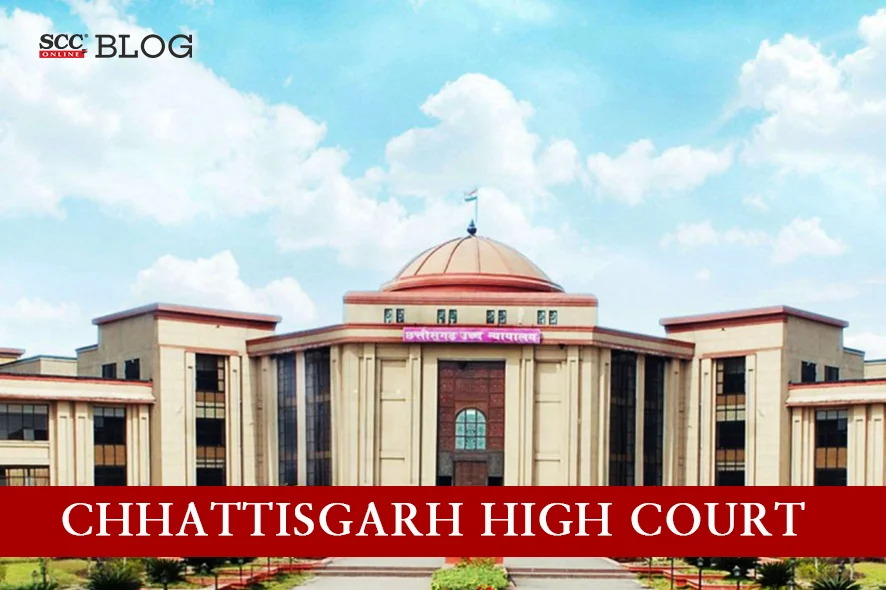Chhattisgarh High Court: In an appeal filed against the impugned judgment dated 23-12-20023, passed by the Special Judge, Rajnandgaon (‘the Trial Court’), Sanjay K. Agarwal,J*., opined that where the child in the womb was full grown, the accused could not be convicted of causing miscarriage under Section 312 of the Penal Code, 1860 (‘IPC’), because the section only contemplated expulsion of the child from the mother’s womb before the gestation period was completed. The Court opined that since there was no expulsion of the embryo or foetus, the act of Appellant 1, would not come within the meaning of Section 314 of the IPC to cause miscarriage, since expulsion of embryo or foetus was one of the main ingredients under Section 314 of the IPC. Thus, the Court set aside the impugned judgment dated 23-12-2002.
Background
In an instant case, it was stated that the deceased, was working as a maid in the house of a juvenile and had developed a relationship outside of marriage with him. Thereafter, the juvenile took the deceased and her children to Nagpur. Subsequently, the police searched for the deceased and after four-five months, they were found in a hut at Nagpur. It was stated that a few unidentified men threatened the deceased’s father to get his daughter aborted as she was five months pregnant.Thereafter, Appellant 1 claimed to be a doctor and treated the deceased, but her health deteriorated, and Appellant 1 asked her father to take her to higher center, but while escorting her, she died on the way. Subsequently, in the post-mortem, which was conducted, it was found that in womb there was dead fetus of twenty-four weeks and there was no external injury, and no poisonous chemical was found in the body.
However, it was stated that on 26-05-2002, Appellant 1 caused the miscarriage and the death of the deceased and Appellants 2,3 and 4 abetted the commission of the offence under Section 314 of the IPC.Further, the investigating officer completed the investigation and filed the charge-sheetagainst the appellants. Subsequently, the Trial Court vide judgment dated 23-12-2022 acquitted the appellants of the charge under Section 3(2)(v) of the Scheduled Castes and the Scheduled Tribes (Prevention of Atrocities) Act, 1989 but, convicted Appellant-1 under Section 314 of the IPC and Appellants 2, 3 and 4, under Section 314 with the aid of Section 109 of the IPC.
Thus, the present batch of criminal appeals were filed against the impugned judgment dated 23-12-2002.
Court’s Assessment, Findings and Decision
The Court noted that in the post-mortem report, the cause of death was stated to be due to shock, but no definite opinion was provided regarding cause of death. However, one of the doctors had clearly stated that a fetus of twenty-four weeks was present in the deceased’s womb and further stated that no definite opinion could be given regarding attempt to abortion or cause of death.
The Court opined that a careful perusal of Section 314 of the IPC would show that, in order to convict a person under Section 314 of the IPC, firstly, it must be established that woman was with child; secondly, the accused did an act to cause miscarriage; thirdly, he did so with such intention; fourthly, such act caused the death of the woman; and fifthly, such an act was done without woman’s consent. The Court opined that where the child in the womb was full grown, the accused could not be convicted of causing miscarriage under Section 312 of the IPC, because the section only contemplated expulsion of the child from the mother’s womb before the gestation period was completed. But in such cases, the accused could be convicted of an attempt to cause miscarriage under this section read with Section 511 of the IPC.
The Court opined that since there was no expulsion of the embryo or fetus, the act of Appellant 1, would not come within the meaning of Section 314 of the IPC to cause miscarriage, since expulsion of embryo or foetus was one of the main ingredients under Section 314 of the IPC. Further, the Court opined that since the miscarriage had not been proved beyond doubt, and other ingredients that Appellant 1 did that act with the intention to cause miscarriage was also missing, therefore, Appellant 1’s conviction for offence under Section 314 of the IPC was set aside.
The Court relied on Madan Raj Bhandari v. State of Rajasthan, (1969) 2 SCC 385, and opined that since substantive offence was not established against Appellant 1, therefore, charge of abetment under Section 314 of the IPC against Appellants 2,3 and 4 failed and their conviction under Section 314 read with Section 109 of the IPC was set aside.
Thus, the Court set aside the impugned judgment dated 23-12-2002 and since the appellants were on bail, the Court opined that they need not surrender and their bail bonds should remain in force for a period of six months as per Section 437-A of the Criminal Procedure Code, 1973.
[Rajesh Kumar v. State of Chhattisgarh, 2024 SCC OnLine Chh 460, decided on 16-01-2024]
*Judgment authored by- Justice Sanjay K. Agarwal
Advocates who appeared in this case :
For the Petitioner: Gurmit Singh Ahluwalia, Advocate; Surendra Singh, Senior Advocate with Pragalbha Sharma, Advocate; K.A. Ansari, Senior Advocate with Meera Ansari and Aman Ansari, Advocates.
For the Respondent: Sudeep Verma, Deputy Government Advocate







